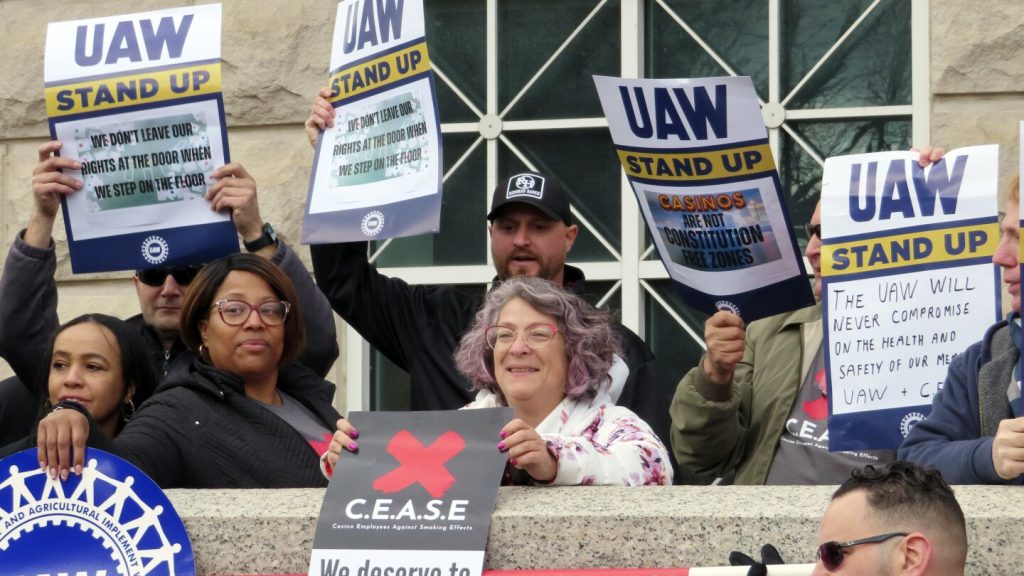Workers in Atlantic City casinos have taken a new approach in their fight to ban smoking in the gambling halls by filing a lawsuit challenging New Jersey’s indoor clean air law. The suit, filed by the United Auto Workers and a group of casino workers opposed to smoking, seeks to have the exemption for casinos declared unconstitutional on several grounds, including equal protection under the law. The workers rallied outside the courthouse to express their frustration at the lack of action by legislators to ban smoking in the casinos.
The issue of banning smoking in casinos is a controversial one that extends beyond Atlantic City to other states where workers are concerned about the effects of secondhand smoke. Similar campaigns are being waged in states like Rhode Island, Pennsylvania, Kansas, and Virginia. Ray Jensen Jr., assistant director of the local UAW office, stated that if legislators are unwilling to act, the fight will be taken to the courtroom to push for a smoking ban in casinos. The Casino Association of New Jersey opposes a smoking ban, citing concerns about competitiveness with neighboring states that allow smoking.
The lawsuit names Democratic Gov. Phil Murphy and the state’s acting health commissioner, with Murphy indicating he would sign a smoking ban if passed by the Legislature. However, Donna DeCaprio, president of Local 54 of the Unite Here casino workers union, warned against a smoking ban, citing potential revenue and job losses that could result in the closure of casinos. She emphasized the economic challenges facing Atlantic City, with only three out of nine casinos seeing an increase in in-person gambling revenue post-pandemic. A bill introduced by state Sen. John Burzichelli proposed limited smoking areas within casinos, which was rejected by workers pushing for a full ban.
U.S. Rep Andy Kim, a candidate for the Democratic nomination for a U.S. Senate seat, voiced support for the casino workers’ push to ban smoking in casinos, drawing a comparison to restrictions on smoking in the United States Capitol. The issue has sparked debate among stakeholders, with workers advocating for a smoke-free environment in casinos to protect their health, while industry representatives express concerns about the potential impact on revenue and competitiveness. The outcome of the lawsuit and ongoing legislative efforts will determine the future of smoking regulations in Atlantic City casinos and could have broader implications for similar campaigns in other states. The fight for a smoke-free workplace in casinos remains a central focus for workers advocating for improved health and working conditions in the industry.


